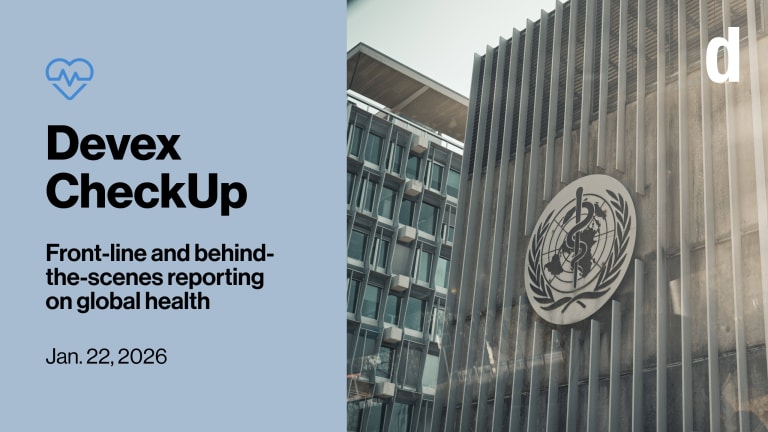
After only one confirmed case, Guinea announced an end to the Marburg virus disease outbreak — a highly infectious hemorrhagic fever similar to Ebola. It was the first case of the disease ever reported in West Africa.
Sign up for Devex CheckUp
The must-read weekly newsletter for exclusive global health news and insider insights.
The country declared the end of the outbreak Thursday.
The case of a 40-year-old male farmer, who died from the disease was found in early August in the country’s southern Gueckedou prefecture, close to the border with Sierra Leone. It is the same region that experienced an Ebola outbreak earlier this year.
The disease kills about half of the people it infects, but case fatality has ranged from 24% to 88% in previous outbreaks. There are no vaccines or antiviral treatments approved for Marburg, but therapies are under development. Supportive care including rehydration through oral or intravenous fluids also helps save lives.
“I think [it] was a good demonstration of what can be done in preparedness, detection, and response.”
— Georges Ki-Zerbo, head of the Guinea country office, World Health OrganizationThe country and its partners deployed a rapid response team, which worked to isolate the contacts of the positive case, and monitor their symptoms for the incubation period of three weeks. They also worked to strengthen the infection, prevention, and control measures in health facilities in the area, and worked with communities to explain the disease.
The Ebola outbreak in the same region was declared over at the end of June, and health workers were still in the 90-day stage of surveillance when the Marburg case was discovered. One of the challenges in the Marburg response was explaining the difference between these two threats, said Dr. Georges Ki-Zerbo, head of the Guinea country office for the World Health Organization. The outbreak also took place in a remote, hard-to reach area.
Since it was the first case discovered in West Africa, the response also integrated research related to zoonotic links, especially with bats, which are a reservoir host of the virus. This included serology studies — tests that look for antibodies in the blood — to identify if there had been previous transfers of the virus to humans, Ki-Zerbo said.
“I must say that this was an exemplary response. After the first case, the teams were able to really come and provide the support with local authorities, communities, youth, women groups — so it was a very inclusive and successful response,” he said.
Will Guinea’s coup interrupt the country’s health responses?
Though regional health experts have warned that the coup in Guinea could lead to disruptions in health responses at a critical time, health officials working in the country said they expect that the coup will not impact service delivery.
“Being able to limit it to one case, with very quality active surveillance, follow up, and community engagement, I think [it] was a good demonstration of what can be done in preparedness, detection, and response,” he added.
The outbreak can be declared over after two periods of incubation of the virus — 42 days. What follows is 90 days of surveillance, where alerts from communities and community deaths are analyzed and health facilities inspected.
“We work to increase the capacity locally for preparedness and detection because we know these diseases are emerging, and reemerging through nature,” he said.
Other outbreaks on the African continent include those in Angola, the Democratic Republic of Congo, Kenya, South Africa, and Uganda. Between 2004 and 2005, Angola experienced the largest outbreak of the disease in history, claiming 329 lives out of 374 reported cases. The most recent outbreak was in 2017 in Uganda, which was quickly contained.
Update, Sept. 16, 2021: This article has been updated to clarify that Guinea declared an end to the Marburg virus disease outbreak Thursday.









